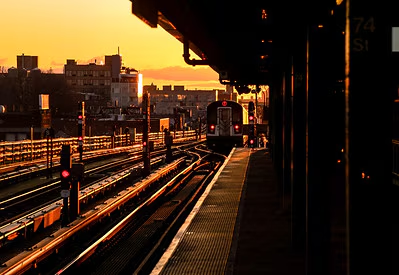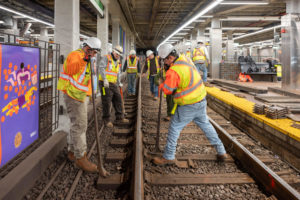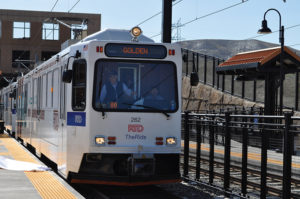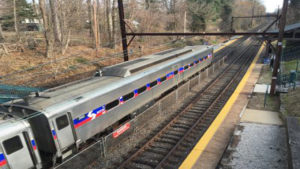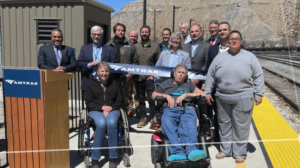MBTA to Make Slow Zone Details Public
Written by Kyra Senese, Managing Editor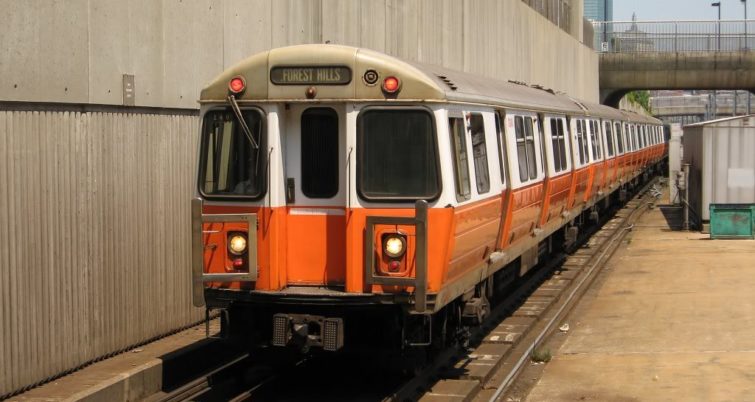
The Massachusetts Bay Transportation Authority plans to begin publishing information about areas of its rapid-transit network with speed restrictions in place due to track and other issues, according to the Boston Globe, reversing a previous policy of non-disclosure that drew harsh criticism during Senate hearings last year.
In response to questions from the Boston Globe last week, MBTA spokesman Joe Pesaturo stated that the agency is working to produce a public report on its slow zones, which will be posted this spring and include information on track lengths, speeds, dates, and reasons for the restrictions.
The change would be a noticeable shift from the agency’s long-standing refusal to release information about its slow zones, the Globe reported. The MBTA does not publish information regarding slow zones and has repeatedly refused to provide a comprehensive list of its speed restrictions, according to the Globe. Estimates from TransitMatters, which designates areas as slow zones after several days of increased travel time, are the only public view of the system’s difficulties.
According to TransitMatters, a round trip on the Red Line is now more than 21 minutes slower than if trains were traveling at full speed. The MBTA did not notify passengers of the sudden slowdown, according to the Globe.
The issue gained steam last fall when the advocacy group TransitMatters found travel times on the Orange Line were slower than they had been before a month-long maintenance shutdown of the line took place.
The MBTA later acknowledged that it had implemented more slow zones to address issues discovered during the shutdown. The agency’s failure to communicate that information drew criticism from U.S. Sen. Ed Markey during a hearing in October.
“For some time there has been a culture of secrecy and only giving riders what they think they need to know,” Jarred Johnson, executive director of TransitMatters, told the Boston Globe. “What I really want to see from the T is not just the full extent of these speed restrictions, but more importantly, ‘What’s the plan to address them?’ ”
The Boston Globe said it recently polled seven other public transportation agencies nationwide about their slow zone disclosure policies. Three agencies—WMATA, SEPTA, and BART—stated that they do not have slow zones so they do not publish any slow zone data.
While slow zones are commonly implemented, a Boston Globe review of 60 speed restrictions in place across the MBTA system in October found that more than 20% of the issues related to the restrictions had gone unrepaired for at least one year.
When the agency does provide records, the Boston Globe reports that the records are often inconsistent or incomplete. When the Globe initially requested the MBTA’s internal list of speed limits last summer, it took four months for the agency to provide a partial spreadsheet dating back to 2019.
In the original time frame, a second version of the records included more than 100 additional restrictions. The T did not respond to questions about the discrepancy at the time, the Globe said.
The agency’s recent efforts to monitor its speed restrictions—a list of active speed restrictions emailed to staff every week since August—are also incomplete. The MBTA confirmed that it does not keep those updates in their entirety and shared only cut-off PDFs in response to the Globe’s additional request for information, regularly omitting slow zones on the Green Line and Mattapan trolley, the Boston Globe reported.
Advocates contend that descriptions of what is being done to relieve the speed restrictions are missing from the MBTA’s internal logs.
The MBTA closed the entire Orange Line for 30 days in August to repair the tracks. However, according to an internal log obtained by the Globe, at least three of the six slow zones that the MBTA claimed it had eliminated during the shutdown still had speed restrictions in place as of Jan. 4.
The MBTA announced last week that a portion of the Orange Line would be closed for the weekend for “work on the Government Center Garage.” Following questions from the Globe, the MBTA confirmed that it would also be making repairs to try to alleviate the Orange Line’s persistent slow zones.

